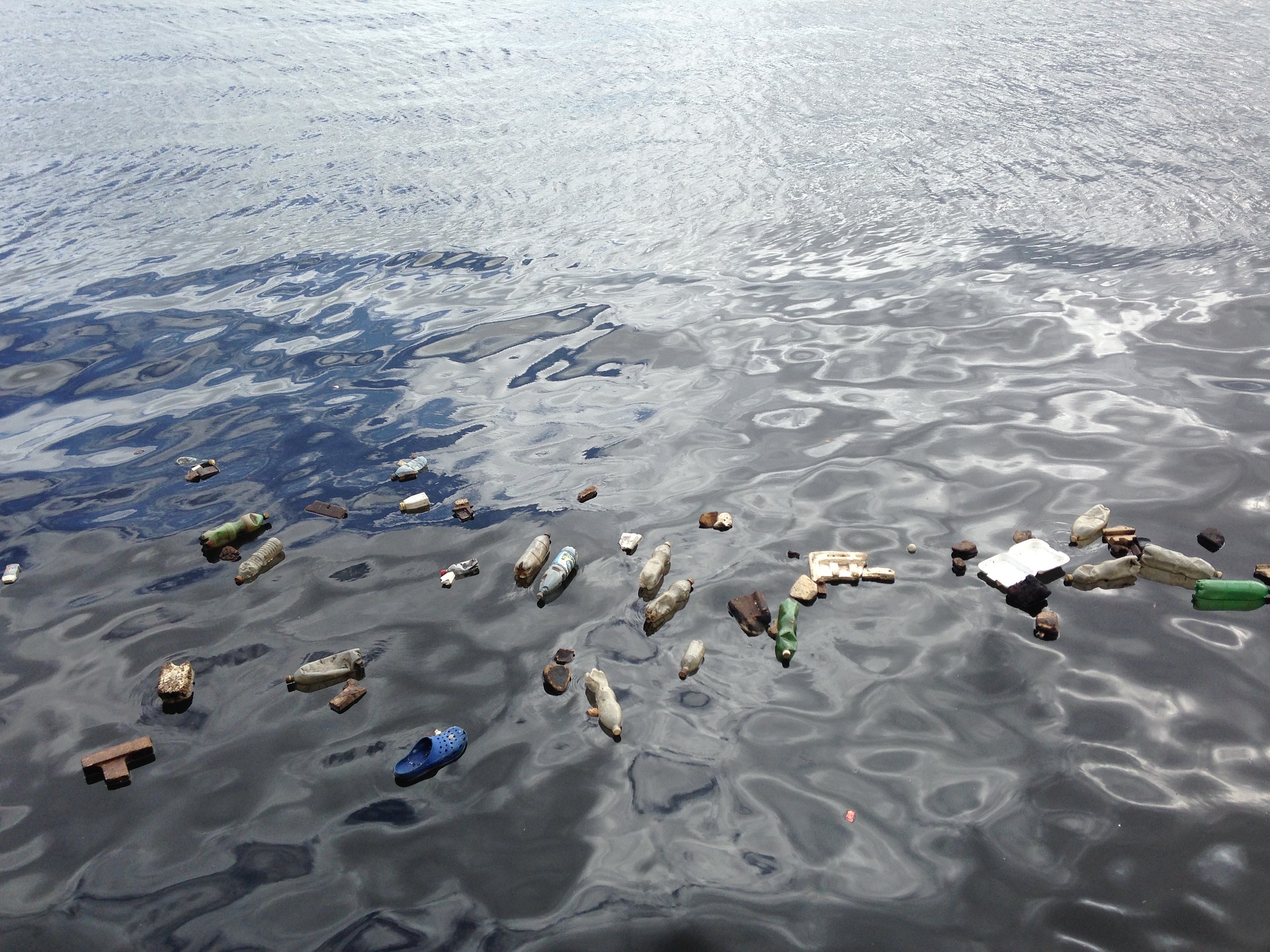Action on ocean plastic pollution
by Ellen Thornton at 15:43 in Circular Economy, Environmental, Emerging, Packaging
Recently, there has been a great deal of publicity concerning ocean plastic pollution. Plastic litter, which makes its way into rivers and coastlines, eventually becomes part of the five gyres in our oceans. These pieces of plastic can be broken down into smaller pieces by sunlight, waves and salt. Waterborne chemicals from industry agriculture can stick to these tiny bit of toxic plastic which are easily consumed by marine life. Once consumed, the toxins can be absorbed into tissue and eventually make their into the human food chain. Fortunately, this recent publicity has prompted governments and companies alike to increase their environmental consciousness through clean-ups, plastic reduction and recycling.

New Zealand have just signed a pledge to become part of the CleanSeas campaign. The campaign was launched by the UN Environment in February 2017, with the aim of engaging governments, the general public, civil society and the private sector in the fight against marine plastic litter. "Turtles and other wildlife are being killed by litter in our oceans. Also, the issue of microplastic in our oceans and its effect on the food chain is a concern for all species and is a potential risk to human health. New Zealand is proud to be joining this campaign to stop this from happening," Associate Environment Minister Eugenie Sage said. The Government is taking steps to prevent litter entering oceans by hitting it at its source on land. Measures include: banning products containing plastic microbeads; developing options to get rid of single use plastic bags; supporting data gathering on marine debris along our coastlines and oceans; funding initiatives through the Waste Minimisation Fund including Keep New Zealand Beautiful, Sustainable Coastlines and the Packaging Forum; and reviewing implementation of the Waste Minimisation Act to use its powers better and promote waste minimisation.
Adidas has recently announced that they sold more than one million pairs of trainers made from 95% ocean plastic last year. One pair of the shoes is made from an average of 11 plastic bottles which are recycled into the laces, heel webbing and lining. The company uses marine waste collected from Parley for the Oceans' clean-up operations, located in the Maldives and along 1,000 coral islands off the western coast of India. Parley claims that the one million pairs of trainer's target, set back in November 2016, uses at least 11 million plastic bottles retrieved from costal areas. The trainers are made of a total of 95% ocean plastic and 5% recycled polyester.
The Galapagos Marine Reserve is one of the largest in the world with an area of 18,000 square km. The islands are home to more than 2,900 species, many of which are found nowhere else in the planet. Unfortunately, plastic rubbish was recently found in the nests of finches, as well as in the stomachs of sea turtles and albatrosses as part of an investigation conducted jointly by the Directorate of the Galapagos National Park and the San Francisco University of Quito. "Many animals confuse [bits of plastic] with the eggs of the marine species they normally eat," Jorge Carrion, director of the Galapagos National Park. A waste management programme on Santa Cruz, the most populated island, has achieved up to 45% recovery of recyclable solid waste – the highest in Ecuador.
A new initiative in Jordan, ‘One Dead Sea is enough', aims to raise awareness of the importance of saving the world's seas and oceans from pollution and man-made waste. Under the EU-funded SwitchMed project, Jordan, with the support of UN Environment, has developed a Sustainable Consumption and Production National Action Plan, based on the country's priorities for green economic growth and the circular economy. As a result of this new action plan, there are two new regulations – the first is a bylaw on plastic bag use already put in place by the Government, which aims to minimize the production, import and circulation of small plastic bags as well as requiring manufacturers to provide bio-degradable plastic bags to consumers. The second is a Draft Waste Management Framework Law under consideration which aims to regulate the waste management sector, reduce pollution and promote recycling and the safe disposal of waste.
The amount of plastic in the ocean is set to triple in a decade unless litter is curbed, says a major report. The Foresight Future of the Sea Report for the UK government said there are also opportunities to cash in on the "ocean economy". They say this is predicted to double to $3 trillion by 2030. One of the authors, Professor Edward Hill from the UK National Oceanography Centre told BBC News: "The ocean is critical to our economic future. Nine billion people will be looking to the ocean for more food. Yet we know so little of what's down there… We invest a lot of money and enthusiasm for missions to space – but there's nothing living out there. The sea bed is teeming with life. We really need a mission to planet ocean – it's the last frontier." The report highlights many concerns, including the current worry about ocean plastic litter, which it forecasts will treble between 2015 and 2025.
The concern over plastic litter in the oceans has increase exponentially over the last few months, and as you can see, people are starting to take action. However, the source of the problem needs to be addressed as well as the tackling the clean-up. An analogy describes this well – if your kitchen sink was overflowing with water the first thing you would do wouldn't be to take the plug out, it would be to turn the tap off. If you have any questions on this topic, please contact us here.
 Click here to receive regular updates on blog posts, webinars, and regulatory changes directly to your inbox
Click here to receive regular updates on blog posts, webinars, and regulatory changes directly to your inbox

